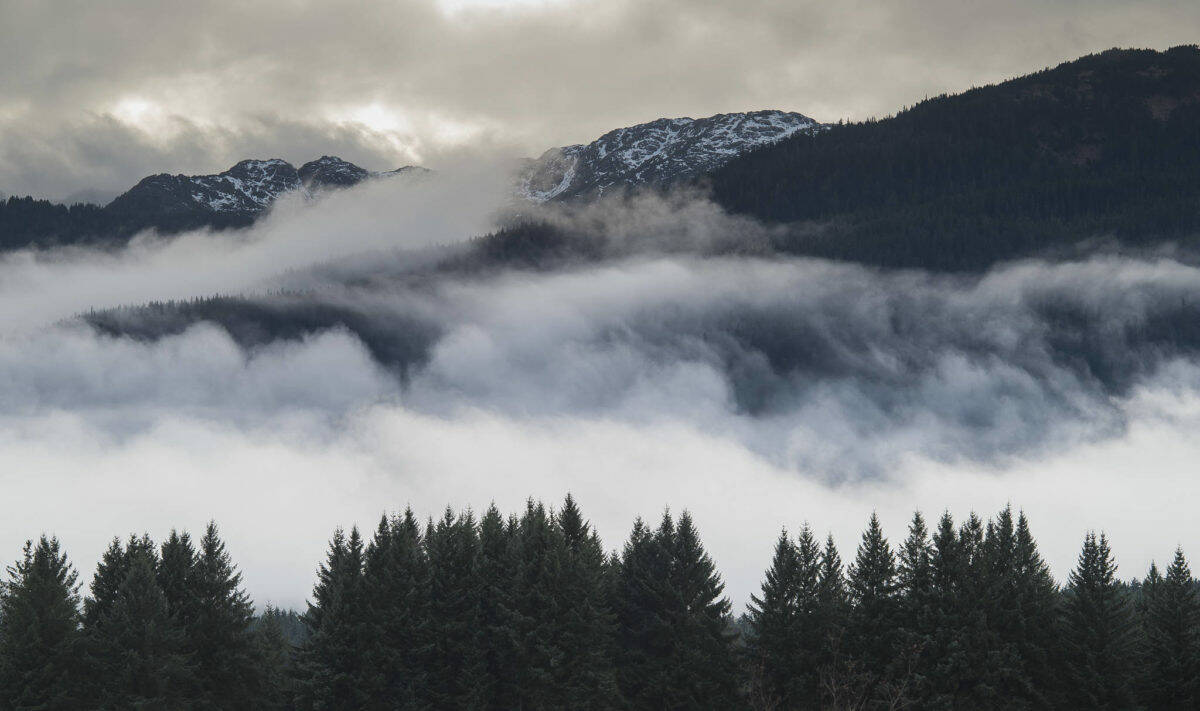I am a Troll in the Tongass. I love that alliteration. It heightens my sense of place to what we simply call “the Tongass.” Being a good Troll, I’ve been around Tongass National Forest management issues for decades and one of the things that I’ve learned is that the “Roadless Rule,” a provision that limits logging roads, is a misnomer for what is actually going on inside the forest.
I first became engaged on Tongass matters when the Tongass Timber Reform Act passed Congress in 1990. I was representing the United Fishermen of Alaska. More recently I served on the Tongass Advisory Committee for aiding the transition to the young growth timber industry. This committee, like others, developed their recommendations based on the Roadless Rule being in place. This was easy to do because there are hundreds of miles of exisiting logging roads that could be used to access second-growth timber. In fact, on Prince of Wales Island alone there are more than 2,000 miles of logging roads.
There is also an exception process that allows for more roads. Since the enactment of the Roadless Rule, 57 projects have been approved under the Forest Service’s exception provision; allowing new roads for hydroelectricity projects, new roads for community development and access to mining claims. In other words, the only new roads not allowed are logging roads for clearcutting timber in roadless areas.
Our political leaders seem to overlook the application of this Exception Provision. Even Rep. Mary Peltola, announced that she does not support the Biden Administration’s decision (to re-instate the Roadless Rule) saying it will prevent community-supported development in the region, including renewable energy projects. All one need do to verify that the exception system works is to look at the community of Sitka which is now using 100% renewable electricity thanks to the Blue Lake hydroelectric project that was approved under the Roadless Rule.
Sen. Dan Sullivan called re-instating the Roadless Rule “overly burdensome” and said he would “fight this and other Biden administration anti-Alaska actions with everything in my power.” If this Roadless Rule is so overly burdensome, then why do Native tribes from Skagway to Ketchikan support the reinstatement of this rule? If this rule is so anti-Alaska why then do a majority of Southeast Alaskans also support this rule? According to a May 2019 poll done by Trout Unlimited, 60% of Southeast Alaskans and 57% of Alaskans statewide wanted the Roadless Rule reinstated.
As a person who has a master’s degree in forest science, I am not anti-timber. But I am a realist and recognize that logging in the Tongass has fundamentally changed. Today, old-growth timber harvest comprises just 1% of Southeast’s economy. According to the State of Alaska’s own economic experts, the Tongass timber industry has been in a state of decline, not because of the Roadless Rule but because of permanent and fundamental changes in global timber markets, high labor costs and distances from markets.
Then it’s important to recognize that old-growth trees are now more valuable as repositories of carbon than they are as timber. As shown by Sealaska Corp., which made $100 million on the carbon assets of 165,000 acres of old-growth, there is a smarter way to go than pushing to log old-growth.
Let’s be honest here. The Roadless Rule, as currently comprised with an exception provision, works. It works for renewable energy and community development. It works for our fisheries, subsistence and tourism. Even the climate benefits. The only place it doesn’t work for is new clearcutting of old-growth, which from a regional economic standpoint is of minimal consequence. If anything, the Biden Administration just took a pro-tribe and a pro-Alaska stance.
• Kate Troll is a retired Natural Resource Professional, a former Borough Assembly member and author of two books. Columns, My Turns and Letters to the Editor represent the view of the author, not the view of the Juneau Empire. Have something to say? Here’s how to submit a My Turn or letter.

